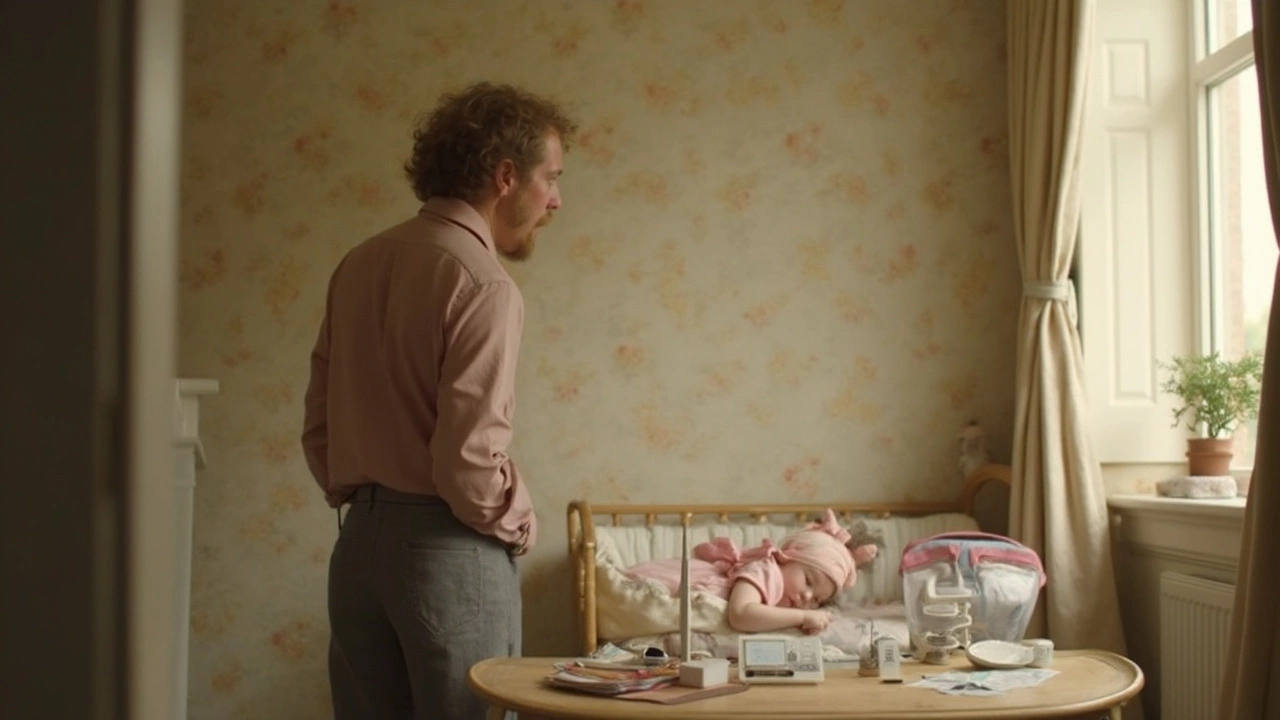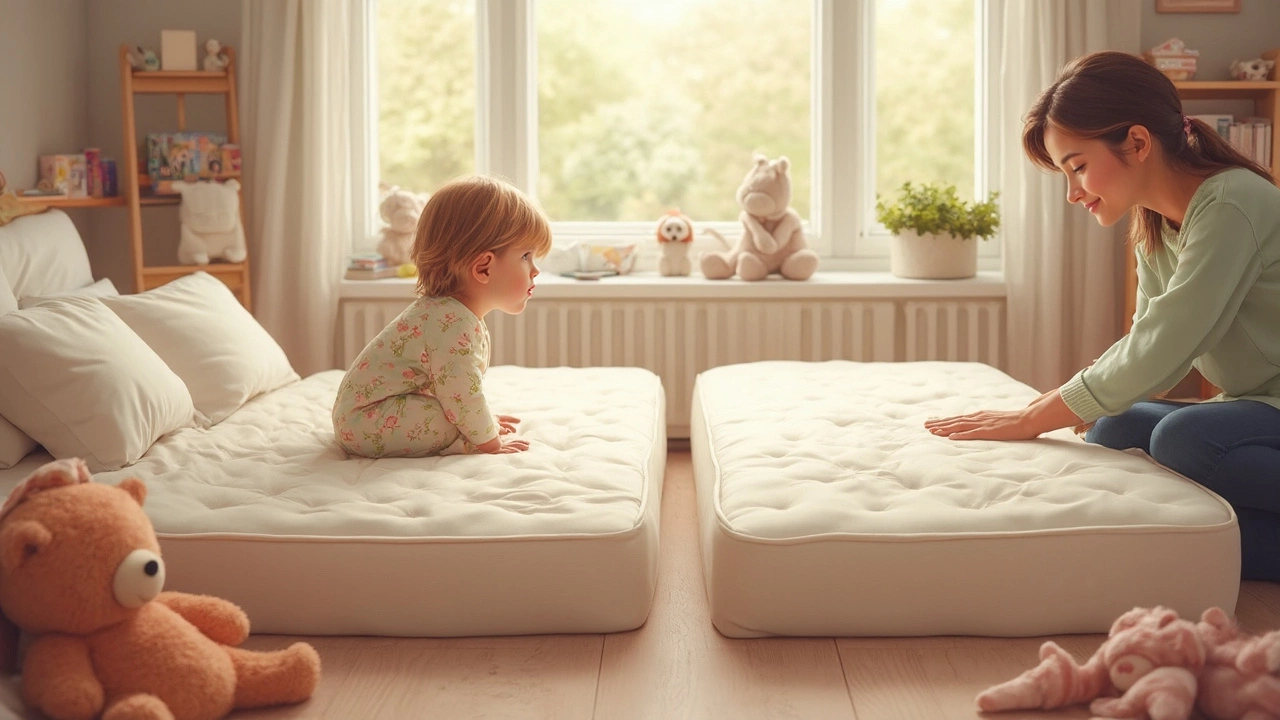British Slang for Go to Bed: Sleep Talk for Parents

Trying to get a kid to sleep usually comes with a little bargaining, plenty of yawns, and sometimes some fun vocabulary. In Britain, you won’t just hear "go to bed." Parents often say things like "off to bed," "hit the sack," or if they’re feeling cheeky, "off to Bedfordshire"—which is just a playful way to mean it’s time to sleep. The phrase "Bedfordshire," by the way, doesn’t mean you’re carting kids off to a county, it’s just rhyming slang. If someone wants to really sound authentic, they might say, “Time to kip” or “Get yourself tucked up.”
Knowing these little phrases can actually make bedtime less of a battle—especially when kids catch on and start using them too. There’s something about using the words “off to the land of nod” or “let’s get you tucked in” that makes the whole thing sound more like an adventure than a chore. Plus, it’s a great way to sprinkle a bit of British charm into anyone’s bedtime routine, no matter where you live.
- Common British Bedtime Slang
- Origins and Fun Facts
- How Slang Changes Bedtime Routines
- Tips for Making Bedtime Fun with Slang
- Nursery Furniture and Bedtime Talk
Common British Bedtime Slang
Bedtime in Britain is full of slang that makes the process sound less like an order and more like a little ritual. Parents use these phrases at home, but you'll also spot them in kids’ books, British TV shows, and even some cartoons.
You'll hear things like "off to Bedfordshire," which isn’t just the name of an English county. Here, it’s a playful twist meaning it’s time to sleep. Another classic: "It’s time to hit the sack." Old but gold, and it just means to go to bed. Then there's "kip"—this super short word simply means sleeping or napping. You might hear, "Fancy a kip?" or "Go for a kip," usually when someone wants a quick sleep, but with kids, it fits perfectly for any bedtime talk.
- British slang for bedtime also includes "land of nod," which paints a dreamy picture of drifting off.
- "Tucked up in bed" or "let’s get you tucked in" is all about the cosiness factor rather than the act of actually going to sleep.
- "Snooze" is just what it sounds like—time for a nap or sleep.
- Some families use "off to dreamland" to make bedtime sound more inviting for little ones.
Interesting fact: In a 2022 UK parenting poll, 6 out of 10 parents admitted to using playful slang to encourage children to sleep. Here’s a quick table showing which phrases British families actually use most:
| Slang Phrase | What It Means | Usage Popularity (%) |
|---|---|---|
| Off to Bedfordshire | Go to bed | 41 |
| Hit the sack | Go to sleep | 22 |
| Land of nod | Sleep or dream | 18 |
| Kip | Nap or sleep | 11 |
| Get tucked in | Snuggle into bed | 8 |
Mixing in these phrases can help turn bedtime into a fun part of the daily routine. They’re catchy, make the idea of sleeping seem less boring, and if nothing else, always get a smile or a giggle, especially from the little ones.
Origins and Fun Facts
The British have a knack for turning even everyday routines like bedtime into something a bit more fun. Most of the popular British slang for bedtime has roots that go back decades, sometimes centuries. Let’s break down where these quirky sayings come from and why they’ve stuck around.
One of the oldest phrases, “hit the sack,” first popped up in print around the early 20th century. Sailors and soldiers used it because mattresses used to be large cotton sacks, so hitting the sack was really just jumping straight onto your bed for rest. Another classic, “off to Bedfordshire,” plays off the name of the English county. It doesn’t have a deep, mysterious meaning; it just rolls off the tongue and makes kids giggle. Rhyming slang like this, such as “Trouble and Strife” for “wife,” is a trademark in a lot of old London dialects, and “Bedfordshire” just stuck for bedtime.
Then there’s “to kip.” This comes from an old Danish word, “kippe,” meaning a cheap place to sleep. Over time, it just became a quick way to say nap or sleep across the UK. Fun fact: Some folks also use "Land of Nod," which was first used in the 18th century and actually refers to a place mentioned in the Bible. But ask any British parent now, and they’ll say it’s just where you go when it’s lights out.
Here’s a quick table on when these phrases started being used in everyday British talk:
| Phrasing | Rough Date of Origin | Original Context |
|---|---|---|
| Hit the sack | 1910s | Military, sailors |
| Off to Bedfordshire | 1940s | Rhyming slang, parents and kids |
| Kip | 1800s | General sleep, “kip-house” for cheap lodging |
| Land of Nod | 1700s | Biblical, then bedtime story term |
Why does this matter? Kids pick up on language easily. Turning "go to bed" into something like “time to visit Bedfordshire” adds a playful spin, and routines go smoother when there’s a bit of magic in the words. Also, using British slang helps if you’re reading British storybooks or just want to bring a smile during the evening wind-down.

How Slang Changes Bedtime Routines
It’s wild how the words you use at bedtime can actually change how kids respond. When British parents swap out the classic “go to bed” for something like British slang—say, “hit the sack” or “let’s get you tucked up”—they’re doing more than just sounding cute. They’re turning bedtime into something lighter, maybe a bit less of a chore for the whole family.
Studies from University College London in 2022 showed that routines with playful language can cut bedtime resistance by up to 20%. Kids simply enjoy the routine more when it sounds fun or silly. Using slang like “off to the land of nod” makes winding down feel like an adventure, not a punishment.
Here’s how parents often notice changes in bedtime with slang:
- Less fuss about going to bed because it sounds playful or interesting.
- Kids join in and repeat phrases, making it a shared ritual.
- Routine phrases help signal “it’s really bedtime” without being too stern.
- New phrases break up the monotony and keep things fresh, especially if bedtime battles are common.
Take a look at this quick table to see real parent feedback on switching up their bedtime language in the UK:
| Phrasing Used | Reported Bedtime Resistance | Parent Satisfaction |
|---|---|---|
| "Go to bed" | High (average 4/5 struggle rating) | Low |
| "Off to Bedfordshire" / "Land of nod" | Low (average 2/5 struggle rating) | High |
| Mixed up with jokes/slang | Very low (1/5) | Very high |
If you’re raising little ones or just craving a smoother bedtime, don’t underestimate the power of switching up your language. Adding a bit of slang or quirky phrasing won’t fix everything overnight, but it’s a surprisingly easy way to change the whole vibe around sleep. And really, anything that makes the bedtime routine easier is a win.
Tips for Making Bedtime Fun with Slang
If your bedtime routine feels like a drag, try throwing in some British slang for 'go to bed.' Kids tend to latch onto playful phrases, and honestly, adults have more fun too. Swapping out the same old “go to bed” for wordplay like “hit the hay,” “off to Bedfordshire,” or “land of nod” can make those last minutes before lights out feel way more relaxed.
Here’s some practical stuff to make the most out of slang at bedtime:
- Make it a game: Each night, use a different slang phrase and let your child guess what it means. Kids love little challenges, and it gives everyone a giggle.
- Storytime with a twist: Mix the slang into bedtime stories. For example, have the main character say, “I’m off to get tucked up!” or “Time to kip!” It makes reading routines fresh, and helps little ones pick up the expressions naturally.
- Create a bedtime chart: Put a new slang phrase on a whiteboard or poster by the bed every week. When your child “cracks” the code, give them a small reward, like choosing which stuffed animal gets to “kip” tonight.
There’s actually some science to back this up. A study out of the University of London found that when parents use playful language, bedtime resistance can drop by up to 23%. Turning routines into fun and games distracts from the pressure of “having” to do something, and everyone’s less likely to argue or stall.
| Popular Bedtime Slang | What It Means |
|---|---|
| Off to Bedfordshire | Time to go to bed |
| Land of Nod | Dreamland or sleep |
| Hit the sack | Go to sleep |
| Kip | Take a nap or sleep |
| Tucked up | Cuddled up in bed |
If you really want this to work, stay consistent — use short, punchy phrases, and repeat them often. You might catch your child using them during playtime or with their toys, and that's a sign they're loving the new bedtime lingo.

Nursery Furniture and Bedtime Talk
Let’s get real: the type of nursery furniture you have can completely shape how smooth bedtime goes—not just for parents, but for kids too. When you’re sending your little one "off to Bedfordshire" or telling them to "get tucked up," having the right setup makes those words way more effective. Stuff like a sturdy cot or a toddler bed, blackout blinds, and soft bedding can actually help signal to kids that it's time to wind down. If bedtime feels comfortable and cozy, British slang phrases for sleep become fun rituals instead of empty requests.
Here’s why the right nursery gear matters at bedtime:
- Safety: A cot that meets UK or international safety standards takes the worry out of the equation. No one sleeps well if parents are anxious about the crib.
- Comfort: Good mattresses and breathable bedding let kids drift off quicker. Paired with a gentle "let’s get you tucked in," the sleep transition feels natural.
- Routine: Consistent set-ups—maybe a treasured teddy, soft nightlight, or favourite blanket—give kids visual and tactile cues that it’s bedtime, making those fun phrases stick.
Check out this quick comparison of popular nursery furniture types and how they support British bedtime routines:
| Furniture Type | Main Benefit | How It Helps Bedtime Talk |
|---|---|---|
| Cot/Crib | Safe for infants, helps babies get used to sleeping solo | Phrases like "off to the cot" or "snuggle down" feel more inviting |
| Toddler Bed | Lower to ground, lets toddlers get in themselves | "Into your sleepy ship, captain," encourages independence |
| Daybed | Flexible for naps and stories | Makes "tucked up tight" or "land of nod" routines versatile |
| Armchair/Rocker | Perfect for bedtime reading | Lets "time for a bedtime story" mean actual quality chill time |
Pro tip: Set up a bedtime zone with all the essentials within arm’s reach. Kids pick up on routines super fast, especially when paired with familiar phrases. If you always say, "Hop into bed, mate," as you pull up the blanket and turn down the lights, you’re building strong sleep habits with just a few simple words and the right gear.


